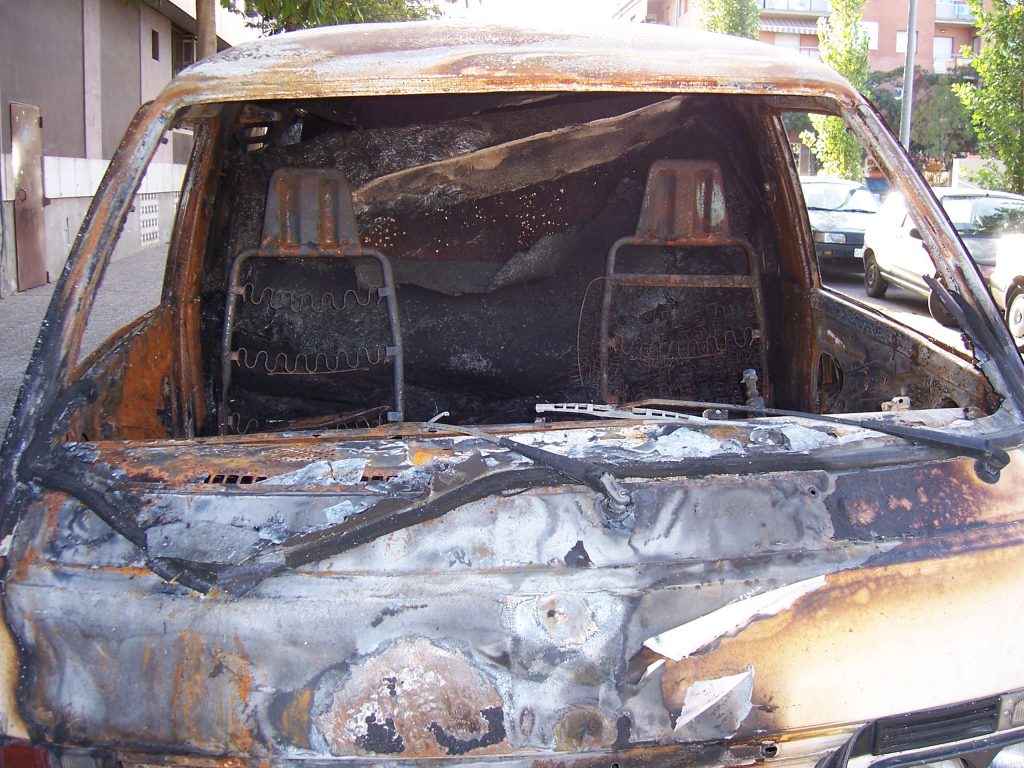 Direct employment is the traditional and most common employer-employee relationship. But what happens when a statutory employee is injured on a work site? A statutory employee is an employee as defined by a state’s statute. While the employer is not the direct employer, the employer becomes the employer of record by force of law. Any worker injured while in the course and scope of employment for a statutory employer must be extended the same protection and benefits as those owed to the employees of the direct employer. This slip-and-fall accident case out of Tangipahoa Parish further describes the rights of Louisiana’s statutory employees in workers’ compensation cases.
Direct employment is the traditional and most common employer-employee relationship. But what happens when a statutory employee is injured on a work site? A statutory employee is an employee as defined by a state’s statute. While the employer is not the direct employer, the employer becomes the employer of record by force of law. Any worker injured while in the course and scope of employment for a statutory employer must be extended the same protection and benefits as those owed to the employees of the direct employer. This slip-and-fall accident case out of Tangipahoa Parish further describes the rights of Louisiana’s statutory employees in workers’ compensation cases.
Devon Energy Production Company, L.P. (“Devon”) was involved in the drilling of a well in Kentwood, Louisiana. Devon entered into an agreement with Asset Security for it to provide security services for Devon at the drilling site. The agreement provided that Devon was to be considered the statutory employer of Asset Security’s employees for purposes of La. R.S. 23:1061(A)(3) and Devon was entitled to the Louisiana protections that are afforded a statutory employer. On July 16, 2012, Ms. Shannon Robinson Kazerooni slipped and fell from the stairs when exiting the mobile trailer at the drilling site. Ms. Kazerooni was a reserve deputy with the Tangipahoa Parish Sheriff’s Office, which had an agreement with Asset Security to provide police officers for security assignments.
Ms. Kazerooni filed a lawsuit against Devon, alleging that the accident and her resulting injuries were caused by Devon’s negligence, and Monster Rentals, LLC, (“Monster”), alleging that Monster provided a defective trailer. Devon asserted the affirmative defense that Devon was the statutory employer of Ms. Kazerooni and that Ms. Kazerooni’s exclusive remedy was workers’ compensation benefits pursuant to LSA-R.S. 23:1061. Devon filed a motion for summary judgment, arguing that Ms. Kazerooni was a statutory employee pursuant to the agreement between Devon and Asset Security and that Devon was immune from suit for tort damages because Ms. Kazerooni’s exclusive remedy was workers’ compensation benefits from Devon. On October 14, 2015, the trial court granted Devon’s motion for summary judgment. Ms. Kazerooni appealed the trial court’s decision to the Louisiana First Circuit Court of Appeal, arguing that there was an unresolved genuine issue of material fact as to whether she was a statutory employee because she was merely a volunteer.
 Louisiana Personal Injury Lawyer Blog
Louisiana Personal Injury Lawyer Blog


 What happens when a person injures another person?
What happens when a person injures another person? What do injured parties do when products are defective and unreasonably damaged? In Louisiana, injured parties may file lawsuits against a manufacturer for damages caused by his products. The following case out of the Western District of Louisiana describes the Louisiana Products Liability Act (“LPLA”).
What do injured parties do when products are defective and unreasonably damaged? In Louisiana, injured parties may file lawsuits against a manufacturer for damages caused by his products. The following case out of the Western District of Louisiana describes the Louisiana Products Liability Act (“LPLA”). Life insurance benefits can provide beneficiaries with the monetary needs they require. What is a life insurance policy? An insurance company agrees by contract to provide a lump-sum payment, called a death benefit, to the beneficiaries upon the insured’s death in exchange for premium payments. But what happens when the insured dies and the beneficiary encounter problems in getting paid? This case out of Concordia Parish explains entitlement to life insurance proceeds in Louisiana.
Life insurance benefits can provide beneficiaries with the monetary needs they require. What is a life insurance policy? An insurance company agrees by contract to provide a lump-sum payment, called a death benefit, to the beneficiaries upon the insured’s death in exchange for premium payments. But what happens when the insured dies and the beneficiary encounter problems in getting paid? This case out of Concordia Parish explains entitlement to life insurance proceeds in Louisiana.  People have bargained with one another since the dawn of time. Many agreements occur through mere conversation, but memory may be faulty or even denied. Thus, written contracts exist to keep a record of agreements made by two people or business entities. When a disagreement over the meaning of a contract is brought to court, the court will refrain from unnecessarily changing the meaning of words in a contract, opting instead to take the written words literally and simply.
People have bargained with one another since the dawn of time. Many agreements occur through mere conversation, but memory may be faulty or even denied. Thus, written contracts exist to keep a record of agreements made by two people or business entities. When a disagreement over the meaning of a contract is brought to court, the court will refrain from unnecessarily changing the meaning of words in a contract, opting instead to take the written words literally and simply.  When insurance coverage doesn’t pay enough money to compensate a victim for injuries suffered in a car accident, underinsured motorist coverage exists to fill in the gaps. Louisiana law requires that insurance companies provide this coverage.
When insurance coverage doesn’t pay enough money to compensate a victim for injuries suffered in a car accident, underinsured motorist coverage exists to fill in the gaps. Louisiana law requires that insurance companies provide this coverage.  Uninsured motorist (UM) liability coverage is additional coverage that can pay for injuries to individuals protected under your policy, including family members in other cars and passengers in your insured cars, resulting from a car accident caused by an uninsured driver. However, this additional coverage can be modified or inapplicable if the insured decides to reject coverage, select lower limits, or select economic-only coverage, which would only cover costs, not non-monetary damages, such as pain and suffering or quality of life damages. UM coverage is also part of most businesses insurance policies. All of these options allow for insurance policies to be flexible, and whatever a policy stipulates is what it will cover, but as a case that arose in the Parish of St. Landry shows, writing and reading an insurance policy isn’t always straight-forward.
Uninsured motorist (UM) liability coverage is additional coverage that can pay for injuries to individuals protected under your policy, including family members in other cars and passengers in your insured cars, resulting from a car accident caused by an uninsured driver. However, this additional coverage can be modified or inapplicable if the insured decides to reject coverage, select lower limits, or select economic-only coverage, which would only cover costs, not non-monetary damages, such as pain and suffering or quality of life damages. UM coverage is also part of most businesses insurance policies. All of these options allow for insurance policies to be flexible, and whatever a policy stipulates is what it will cover, but as a case that arose in the Parish of St. Landry shows, writing and reading an insurance policy isn’t always straight-forward.  In the midst of a very active hurricane season, it is important to remember that Louisiana is no stranger to this type of inevitable damage. However, the dangers involved in disaster clean-up efforts are often forgotten, and far too often people who aid in these efforts aren’t compensated fairly when things turn awry. A recent lawsuit helped linemen who faced similar dangers recover for injuries they sustained during a disaster clean-up.
In the midst of a very active hurricane season, it is important to remember that Louisiana is no stranger to this type of inevitable damage. However, the dangers involved in disaster clean-up efforts are often forgotten, and far too often people who aid in these efforts aren’t compensated fairly when things turn awry. A recent lawsuit helped linemen who faced similar dangers recover for injuries they sustained during a disaster clean-up.  It’s a common belief that a landlord is always responsible for the upkeep of a property, and if an injury occurs because of the landlord’s failure to keep premises safe the landlord is financially responsible for any injury suffered. As Kwan Anderson learned the difficult way, however, this is not always the case. A lawsuit out of Parish of Evangeline shows that when a tenant contracts to take on responsibilities of upkeep, they could lose their ability to collect damages for an injury caused by that failure of upkeep.
It’s a common belief that a landlord is always responsible for the upkeep of a property, and if an injury occurs because of the landlord’s failure to keep premises safe the landlord is financially responsible for any injury suffered. As Kwan Anderson learned the difficult way, however, this is not always the case. A lawsuit out of Parish of Evangeline shows that when a tenant contracts to take on responsibilities of upkeep, they could lose their ability to collect damages for an injury caused by that failure of upkeep. Lawsuits often appear to be complicated and complex, but what many people don’t know is that the outcome of a lawsuit can often be determined by a simple matter of logistics. The who, what, when, where and why of a situation can make the difference between winning and losing a case. For instance, a simple matter of jurisdiction was the deciding factor in a case brought by a South Louisiana man and his wife.
Lawsuits often appear to be complicated and complex, but what many people don’t know is that the outcome of a lawsuit can often be determined by a simple matter of logistics. The who, what, when, where and why of a situation can make the difference between winning and losing a case. For instance, a simple matter of jurisdiction was the deciding factor in a case brought by a South Louisiana man and his wife.